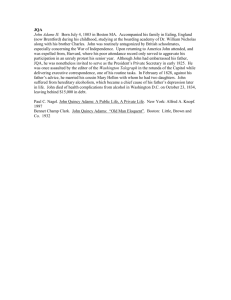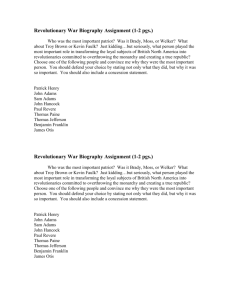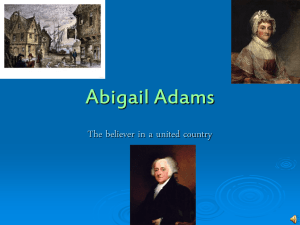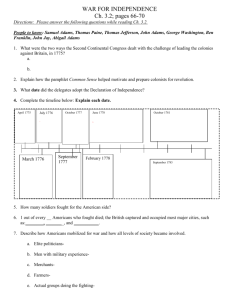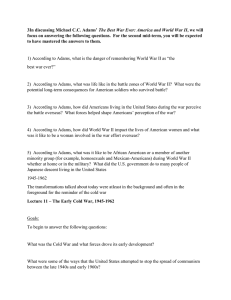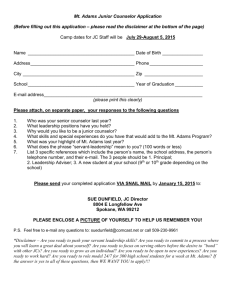Revolutionaries!
advertisement
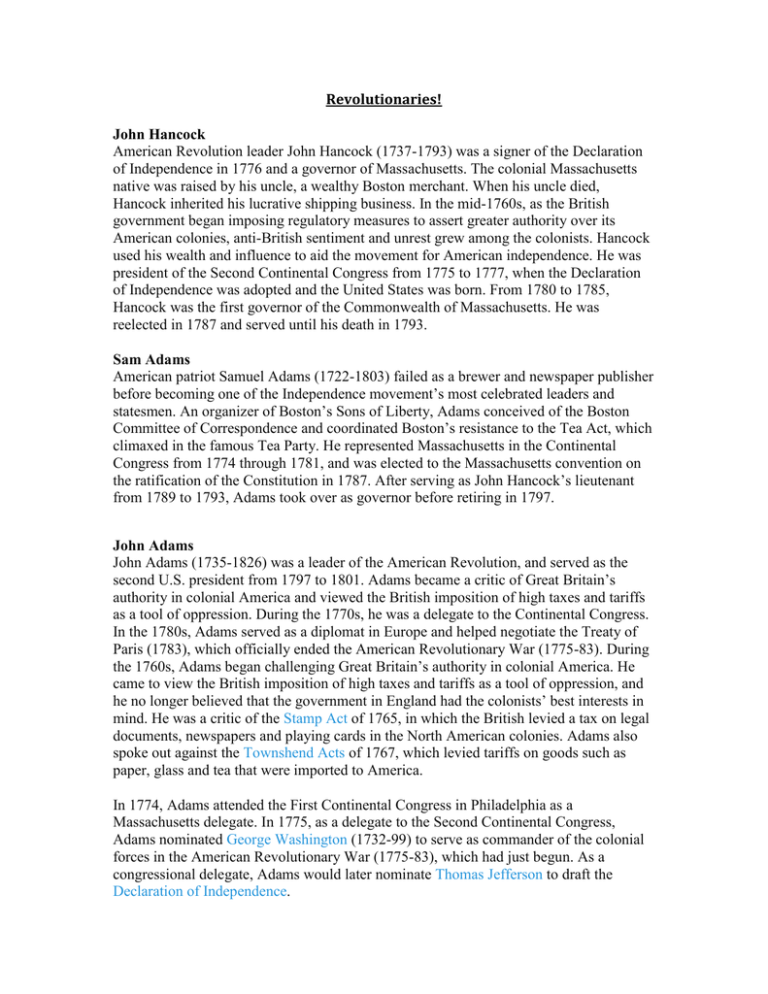
Revolutionaries! John Hancock American Revolution leader John Hancock (1737-1793) was a signer of the Declaration of Independence in 1776 and a governor of Massachusetts. The colonial Massachusetts native was raised by his uncle, a wealthy Boston merchant. When his uncle died, Hancock inherited his lucrative shipping business. In the mid-1760s, as the British government began imposing regulatory measures to assert greater authority over its American colonies, anti-British sentiment and unrest grew among the colonists. Hancock used his wealth and influence to aid the movement for American independence. He was president of the Second Continental Congress from 1775 to 1777, when the Declaration of Independence was adopted and the United States was born. From 1780 to 1785, Hancock was the first governor of the Commonwealth of Massachusetts. He was reelected in 1787 and served until his death in 1793. Sam Adams American patriot Samuel Adams (1722-1803) failed as a brewer and newspaper publisher before becoming one of the Independence movement’s most celebrated leaders and statesmen. An organizer of Boston’s Sons of Liberty, Adams conceived of the Boston Committee of Correspondence and coordinated Boston’s resistance to the Tea Act, which climaxed in the famous Tea Party. He represented Massachusetts in the Continental Congress from 1774 through 1781, and was elected to the Massachusetts convention on the ratification of the Constitution in 1787. After serving as John Hancock’s lieutenant from 1789 to 1793, Adams took over as governor before retiring in 1797. John Adams John Adams (1735-1826) was a leader of the American Revolution, and served as the second U.S. president from 1797 to 1801. Adams became a critic of Great Britain’s authority in colonial America and viewed the British imposition of high taxes and tariffs as a tool of oppression. During the 1770s, he was a delegate to the Continental Congress. In the 1780s, Adams served as a diplomat in Europe and helped negotiate the Treaty of Paris (1783), which officially ended the American Revolutionary War (1775-83). During the 1760s, Adams began challenging Great Britain’s authority in colonial America. He came to view the British imposition of high taxes and tariffs as a tool of oppression, and he no longer believed that the government in England had the colonists’ best interests in mind. He was a critic of the Stamp Act of 1765, in which the British levied a tax on legal documents, newspapers and playing cards in the North American colonies. Adams also spoke out against the Townshend Acts of 1767, which levied tariffs on goods such as paper, glass and tea that were imported to America. In 1774, Adams attended the First Continental Congress in Philadelphia as a Massachusetts delegate. In 1775, as a delegate to the Second Continental Congress, Adams nominated George Washington (1732-99) to serve as commander of the colonial forces in the American Revolutionary War (1775-83), which had just begun. As a congressional delegate, Adams would later nominate Thomas Jefferson to draft the Declaration of Independence.
